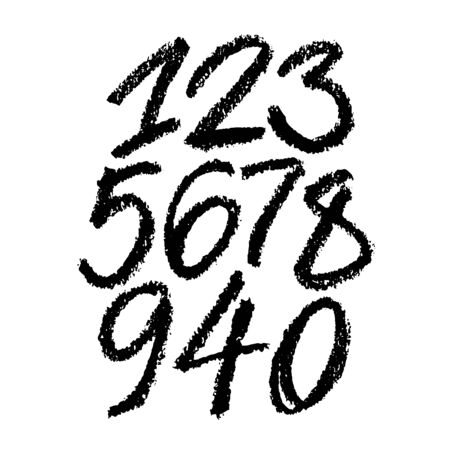Introduction: The Allure of Bazi Compatibility in Today’s World
In the heart of modern America’s ever-evolving cultural tapestry, people are searching for deeper meaning, connection, and understanding—not just with others, but within themselves. As we navigate love, career choices, and personal growth, many are turning to ancient wisdom for guidance. Among these time-honored traditions, Bazi—a Chinese metaphysical system rooted in interpreting one’s birth chart—has emerged as a captivating tool for self-discovery and relationship insight. Its allure lies not only in its mystique but also in its promise of revealing hidden patterns and unlocking personal potential. For Americans from all walks of life, Bazi offers a fresh lens through which to view compatibility, destiny, and the choices that shape our journeys. In this article, we’ll explore why Bazi is capturing the imagination of those seeking both clarity and connection in an increasingly multicultural society.
Common Myths vs. Reality: Bazi Compatibility Demystified
In today’s world, ancient practices like Bazi often find themselves clouded by myths and misinterpretations, especially when it comes to compatibility. Many believe that Bazi is a mystical tool capable of guaranteeing a perfect match or, conversely, dooming relationships before they begin. To truly appreciate what Bazi offers, it’s essential to separate fact from fiction and see how this practice fits into the context of modern American life.
Debunking “Fate is Set in Stone”
One of the most pervasive misunderstandings about Bazi is the idea that it rigidly dictates your destiny—especially regarding love and partnership. While Bazi does provide insight into your inherent energies and personality tendencies, it doesn’t lock you into an unchangeable fate. In reality, Bazi acts more like a weather forecast than a prophecy: it highlights potential patterns and challenges but leaves plenty of room for free will, personal growth, and mutual understanding within a relationship.
Bazi Is Not a Magic Solution
Another common myth is treating Bazi as a “matchmaking panacea.” It’s tempting to hope for a system that guarantees lasting happiness with the right person. However, Bazi is not designed to magically solve all relationship issues or to single-handedly determine who you should—or shouldn’t—be with. Instead, it offers guidance on compatibility factors such as communication styles and emotional needs, helping couples better understand each other rather than promising instant chemistry or bliss.
Myth vs. Reality Table
| Myth | Reality |
|---|---|
| Bazi fixes all relationship problems. | Bazi provides insight but real work comes from both partners. |
| Bazi decides your romantic fate completely. | Bazi suggests tendencies; you still shape your own destiny. |
| If charts “clash,” the relationship will fail. | “Clashes” signal areas for growth, not inevitable disaster. |
| Bazi only works for people from Asian cultures. | Bazi principles can be meaningful across cultures, including in the US. |
The Heart of Modern Compatibility
Ultimately, Bazi is best used as a self-awareness tool—a way to open honest conversations about strengths, challenges, and unique traits within any partnership. In America’s diverse cultural landscape, it becomes one more resource for fostering empathy and deeper connections rather than a strict rulebook dictating who belongs together. By letting go of rigid misconceptions and embracing what Bazi truly offers, couples can co-create their own destinies grounded in understanding and respect.

3. What Bazi Compatibility Actually Measures
At its heart, Bazi compatibility isn’t about casting rigid verdicts on whether two people “fit” or not—it’s an ancient art that offers nuanced insight into how individuals interact and evolve together. In modern American society, where diversity of thought, lifestyle, and ambition is celebrated, understanding the true meaning of Bazi can actually empower relationships rather than limit them.
Breaking Down the Core Concepts
Bazi, sometimes called Four Pillars of Destiny, analyzes a person’s birth data to reveal their elemental make-up—think of it as a unique cosmic fingerprint. When we talk about compatibility, we’re not just talking about romance; Bazi can illuminate dynamics in friendships, business partnerships, and family ties as well.
Individual Strengths and Growth
Bazi compatibility goes beyond simple “good” or “bad” matches. Instead, it highlights where each person shines and where they might face challenges. For example, one person may have strong leadership qualities while another brings empathy and adaptability to the table. Rather than opposing forces, these differences can become sources of growth when understood and respected.
Communication Styles
Ever wonder why some people just “get” you while others seem to speak a different language? Bazi sheds light on underlying communication styles by examining elements like Wood (growth), Fire (passion), Earth (stability), Metal (logic), and Water (intuition). Recognizing these tendencies helps couples or teams create bridges rather than barriers.
Potential Life Patterns
Rather than predicting fate with a fatalistic outlook, Bazi reveals potential life patterns—cycles of energy that influence timing, motivation, and even decision-making. By understanding these rhythms, individuals can support each other through transitions, celebrate wins together, and gently guide one another through rough patches.
The Modern Takeaway
Ultimately, Bazi compatibility is less about drawing lines in the sand and more about fostering deeper understanding. It invites us to see relationships as opportunities for mutual healing and destiny-shaping—where difference is an invitation to grow closer, not drift apart.
4. The Modern Application: Bazi Without Superstition
In today’s fast-paced and diverse American society, the wisdom of Bazi is gaining renewed attention, not as a mystical fortune-telling tool, but as a meaningful resource for self-awareness and relationship insight. Rather than viewing Bazi compatibility as a rigid set of do-or-die rules, modern practitioners encourage using it as a supportive guide that complements personal growth journeys and nurtures authentic connections.
Bazi offers individuals a unique lens through which to understand their inherent strengths, potential challenges, and emotional needs. Instead of dictating who you should or shouldn’t love or work with, Bazi helps illuminate patterns in your behavior and communication style, empowering you to make conscious choices that foster harmony and fulfillment. This approach is especially relevant in American culture, where autonomy and self-development are highly valued.
Bazi as a Supportive Tool
Let’s break down how Bazi can serve as a practical tool for personal growth and relationships:
Aspect |
Bazi Insight |
Modern Application |
|---|---|---|
| Self-Understanding | Identifies core personality traits and natural tendencies | Encourages self-reflection, leading to better mental health and resilience |
| Relationship Dynamics | Highlights potential areas of harmony and friction with others | Promotes open communication and empathy in friendships or partnerships |
| Personal Growth | Reveals cycles of change and opportunity in life | Supports goal setting, career planning, and adaptive decision-making |
Bazi in Everyday Life: An Empowering Perspective
This contemporary interpretation shifts the focus from superstition to empowerment. For instance, if your Bazi chart suggests you’re naturally assertive while your partner tends to be more introspective, this isn’t a “bad match.” Instead, it’s an invitation to appreciate each other’s differences and grow together by honoring both perspectives. In the same way Americans value diversity and inclusivity, Bazi encourages embracing uniqueness rather than imposing limitations.
Bazi as Your Guide, Not Your Judge
The heart of modern Bazi practice lies in compassion—for yourself and others. It’s about using ancient wisdom as a gentle guide on your journey, not as a judge dictating your destiny. When approached with openness and curiosity, Bazi becomes a healing tool that supports you in navigating life’s uncertainties with greater confidence, clarity, and hope.
5. Cultural Translation: Integrating Bazi Into American Life
Bazi, an ancient Chinese metaphysical system, has journeyed far from its original cultural soil. As it finds new ground in America, a fascinating process of adaptation and reinterpretation is unfolding. Americans—known for their openness to self-exploration and diverse belief systems—are not simply adopting Bazi; they are making it their own, weaving its wisdom into the tapestry of their everyday lives while honoring its origins.
Unlike in traditional contexts where Bazi might be consulted primarily for marriage or business compatibility, Americans are applying Bazi through a broader lens. Here, Bazi readings are often used as tools for personal growth, relationship insight, and even professional development. This mirrors the American emphasis on self-discovery and individual empowerment. Instead of rigidly adhering to tradition, practitioners and enthusiasts alike are blending Bazi’s guidance with modern psychological insights, using inclusive language and integrating coaching techniques familiar to Western audiences.
This cultural translation is also evident in the way Bazi is discussed and shared. Workshops, online forums, and social media spaces bring together people from all walks of life who may have little or no connection to Chinese heritage. They discuss Bazi alongside astrology, personality typologies like Myers-Briggs, and even contemporary mindfulness practices. The fusion highlights both respect for ancient knowledge and a willingness to reinterpret it for today’s world—a hallmark of American multiculturalism.
Yet, there is a mindful effort within this integration to avoid appropriation or superficial use. Many American practitioners actively seek out authentic sources, collaborate with experts from Asian backgrounds, and acknowledge the deep philosophical roots that anchor Bazi’s wisdom. This careful approach ensures that while Bazi evolves in a new setting, its soul is not lost but rather respected and celebrated.
Ultimately, the way Americans are embracing Bazi reflects a beautiful paradox: honoring the past while moving forward; holding onto the threads of destiny while weaving them into new patterns of meaning. In this evolving landscape, Bazi becomes more than a compatibility tool—it transforms into a bridge connecting cultures, generations, and hearts seeking understanding in a complex world.
6. Conclusion: Embracing Wisdom, Not Timetables
At the end of the day, Bazi compatibility isn’t about ticking boxes or following a rigid timeline for love, marriage, or success. Instead, it’s an invitation to embrace self-awareness and compassion—both for yourself and your partner. In our modern American society, where individuality is celebrated and relationships are as unique as each person’s story, Bazi can offer a gentle guide rather than a rulebook. It encourages us to look beyond surface-level “yes or no” answers and dig into what truly makes us connect and grow together.
Let’s remember: your destiny isn’t written in stone by ancient charts or cosmic calendars. Bazi is a tool for understanding patterns, emotional needs, and areas where healing might be needed. By using this wisdom, you can nurture deeper communication, cultivate empathy, and release old fears that may have held you back from loving fully. Whether you’re single, dating, or married, Bazi offers insights—not ultimatums.
You have the power to shape your own path. Let Bazi be a mirror for reflection and growth, not a cage of limitations. Trust that your choices matter more than any prediction; use these ancient teachings as a source of empowerment on your journey. When you approach compatibility with curiosity instead of anxiety, you open the door to authentic connections and emotional healing.
So if you’re drawn to explore Bazi, do so with an open heart. Use it as a resource for understanding—not as something that dictates who you can love or when happiness will arrive. In this way, we honor tradition while living fully in the present moment, shaping lives guided by both wisdom and free will.


